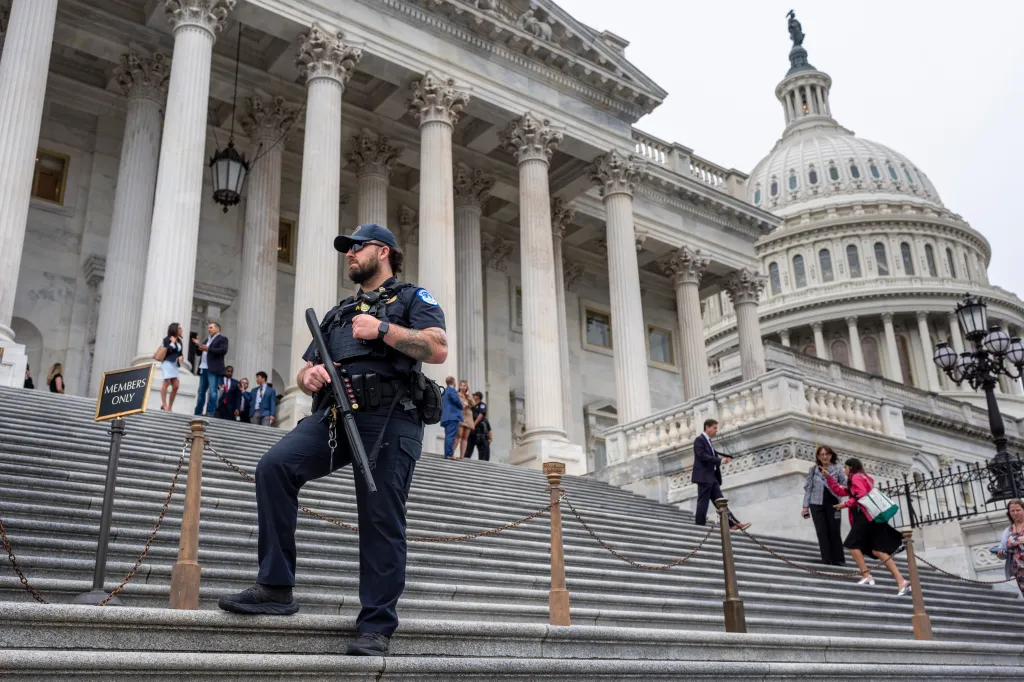
The killing of Charlie Kirk continues to send ripples through Washington, as lawmakers across the political spectrum move to increase their own security.
Kirk, a prominent right-wing activist and staunch supporter of President Trump, was fatally shot earlier this month while speaking at a campus event at Utah Valley University.
The shocking killing, described by Utah Gov. Spencer Cox as a “political assassination,” has shaken lawmakers on both sides of the aisle, intensifying fears over safety amid a political climate marked by frequent threats and rising calls for violence.
On Thursday, the Senate greenlit a measure allowing senators to use official office funds for security purposes. The House is also pushing for an increase in security funding.
The government funding bill, approved by the lower chamber on Friday, would provide approximately $88 million to enhance security for lawmakers, Supreme Court members and executive branch officials.
“Members of Congress receive much less security than many of the local officials back at home or judges,” said Rep. Greg Casar, a Democrat from Texas. “Oftentimes, we have been the least secure.”
While top executive officials have security details, rank-and-file lawmakers often travel without protection when away from Capitol Hill, which is patrolled by the U.S. Capitol Police. Some members of Congress even cover their own security costs from private or campaign funds.
“Political violence is meant to silence us. And we can’t be silenced for the sake of democracy,” Casar said. “And so, providing some level of safety and security for our members, I think, is key.”
“We’ve been needing this,” agreed Rep. Anna Paulina Luna, a Republican from Florida. “The fact that it took for this to happen to even address this is crazy to me, but it needs to be dealt with.”
The growing security crisis — which has made front-page headlines in recent months following Kirk’s murder and the killing of Minnesota State Rep. Melissa Hortman, a Democrat, and her husband in June — has been escalating for some time, officials say.
According to the U.S. Capitol Police, the number of threat assessment cases has risen steadily over the past four years. Last year, the department tracked more than 9,000 cases, a figure expected to jump more than 50% to roughly 14,000 this year.



